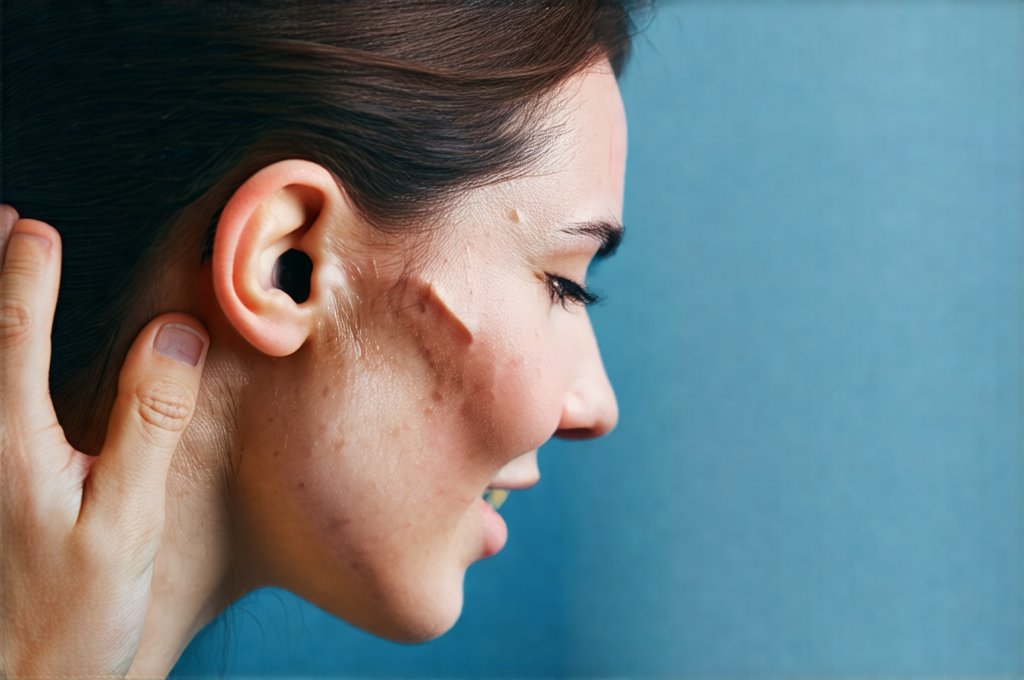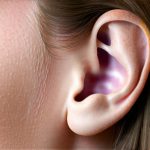Gastroesophageal reflux disease (GERD), commonly experienced as heartburn, is often dismissed as merely an uncomfortable digestive issue. However, its reach can extend far beyond the esophagus, impacting seemingly unrelated areas of the body. Many individuals experiencing persistent ringing in their ears – known as tinnitus – or noticing changes in their hearing have begun to question a potential link with chronic acid reflux. While not always immediately obvious, a growing body of research and clinical observation suggests that GERD can indeed contribute to auditory symptoms, though the mechanisms are complex and often indirect. Understanding this connection is crucial for accurate diagnosis and effective management, as addressing the root cause – GERD – may alleviate or improve hearing-related problems.
The relationship between GERD and ear issues isn’t a straightforward one. It’s not typically about acid directly entering the inner ear (though that can happen in rare cases). Instead, it’s more often related to inflammation, nerve irritation, and vascular changes triggered by chronic reflux. The digestive system and auditory system are surprisingly interconnected through shared neural pathways and proximity within the head and neck region. Therefore, persistent GERD symptoms can create a cascade of effects that ultimately impact hearing and balance. This article will explore the potential connections between GERD, tinnitus, and other hearing difficulties, focusing on the proposed mechanisms and what individuals experiencing these issues should consider.
The Connection Between GERD and Tinnitus
Tinnitus, defined as the perception of sound when no external sound is present, affects millions worldwide. It’s not a condition in itself but rather a symptom often resulting from an underlying cause. While noise exposure, age-related hearing loss, and Meniere’s disease are well-known triggers, GERD is increasingly recognized as a contributing factor in some cases. The link isn’t always immediately apparent because the onset of tinnitus may not coincide directly with reflux episodes; it can develop gradually over time as chronic inflammation takes hold. – Many individuals report experiencing tinnitus alongside other GERD symptoms like heartburn, regurgitation, and difficulty swallowing. – Some find their tinnitus flares up after consuming trigger foods or during periods of increased stress, both of which are known to exacerbate GERD. Understanding the role of antacids can also be helpful in managing symptoms.
The proposed mechanisms behind this connection center around the vagus nerve, a long cranial nerve extending from the brainstem to the abdomen. This nerve plays a crucial role in regulating various bodily functions including digestion and hearing. Acid reflux can irritate the vagus nerve as it passes through the esophagus, potentially disrupting its signals and leading to auditory disturbances. Furthermore, chronic inflammation associated with GERD may affect blood flow to the inner ear, impacting its delicate structures responsible for balance and hearing. It’s also hypothesized that inflammatory substances released during reflux episodes can reach the middle ear via the Eustachian tube – a passageway connecting the middle ear to the back of the throat – further contributing to inflammation and potentially triggering tinnitus.
Ultimately, it’s important to note that GERD is rarely the sole cause of tinnitus. It’s often one piece of a larger puzzle. However, recognizing its potential role allows for a more comprehensive evaluation and treatment approach, especially for individuals with both GERD and unexplained tinnitus. A thorough medical assessment is vital to rule out other causes and determine whether GERD is contributing to the auditory symptoms. – Consider if eating the same food every day might be a factor, too.
Hearing Loss and GERD: Exploring the Relationship
While tinnitus is perhaps the most commonly reported auditory symptom linked to GERD, some research suggests a potential connection with actual hearing loss. The mechanisms are similar to those proposed for tinnitus – inflammation, vagus nerve disruption, and altered blood flow – but the effects can manifest differently. Chronic acid reflux can contribute to Eustachian tube dysfunction, leading to fluid buildup in the middle ear. This fluid can dampen sound transmission and potentially impact hearing sensitivity over time.
Beyond the middle ear, GERD-related inflammation may also affect the inner ear structures directly. The delicate hair cells within the cochlea – responsible for converting sound vibrations into electrical signals – are particularly vulnerable to damage from inflammatory processes. Long-term exposure to inflammation can gradually impair these hair cells, leading to progressive hearing loss. It’s important to emphasize that this type of hearing loss is typically gradual and subtle, making it difficult to detect in its early stages. – Individuals with long-standing GERD should consider periodic audiological evaluations to monitor their hearing health. – Any sudden or rapid decline in hearing warrants immediate medical attention, as it may indicate a different underlying issue. Managing weight management can also play a role in reducing GERD symptoms.
The interplay between GERD and hearing loss is complex and requires further research. However, the growing evidence suggests that managing GERD effectively can potentially help preserve hearing function and prevent further deterioration. It’s also crucial to remember that other factors – such as age, noise exposure, and genetics – play a significant role in hearing loss, so a comprehensive assessment is essential for accurate diagnosis and personalized treatment planning.
Investigating the Link: Diagnostic Approaches
If you suspect GERD might be contributing to your tinnitus or hearing issues, several diagnostic steps can help determine the extent of the connection. First, a thorough medical history review is crucial. This includes details about your digestive symptoms (heartburn, regurgitation, bloating), auditory complaints (tinnitus characteristics, hearing difficulty in specific situations), and any other relevant health conditions. Your doctor will likely ask about dietary habits, lifestyle factors (smoking, alcohol consumption), and medication use.
Next, diagnostic tests may be ordered to evaluate both GERD and your hearing. For GERD, these might include: 1. Esophageal manometry: Measures the pressure and coordination of esophageal muscles during swallowing. 2. Endoscopy: Allows visualization of the esophagus and stomach to detect inflammation or damage. 3. pH monitoring: Assesses the amount of acid refluxing into the esophagus over a 24-hour period. For hearing, an audiological evaluation is essential. This typically involves: – Pure-tone audiometry: Measures your ability to hear different frequencies and intensities. – Tympanometry: Evaluates middle ear function. – Tinnitus matching: Attempts to characterize the pitch and loudness of your tinnitus.
In some cases, further investigations may be warranted to rule out other potential causes of auditory symptoms or to assess the extent of GERD-related complications. These could include imaging studies (CT scan or MRI) or referral to a specialist such as an otolaryngologist (ENT doctor) or gastroenterologist. A collaborative approach between healthcare professionals is often the most effective way to diagnose and manage these interconnected conditions. Understanding meal timing can also be a helpful step in diagnosis.
Treatment Strategies: Managing GERD for Auditory Relief
The primary treatment strategy for GERD-related auditory symptoms focuses on managing the underlying reflux disease. This typically involves a combination of lifestyle modifications, dietary changes, and medication. Lifestyle adjustments may include: – Elevating the head of your bed to prevent nighttime reflux. – Avoiding trigger foods (e.g., caffeine, alcohol, spicy foods, fatty foods). – Losing weight if overweight or obese. – Quitting smoking. – Eating smaller, more frequent meals.
Dietary changes often involve eliminating or reducing consumption of foods that exacerbate GERD symptoms. Medication options range from over-the-counter antacids and H2 blockers to prescription proton pump inhibitors (PPIs), which are more potent acid suppressors. The choice of medication will depend on the severity of your GERD and individual response. It’s crucial to consult with your doctor before starting any new medications or making significant changes to your diet.
For individuals experiencing tinnitus or hearing loss, addressing GERD may not immediately eliminate symptoms, but it can potentially slow down progression and improve overall auditory function. In some cases, additional therapies such as tinnitus retraining therapy (TRT) or hearing aids may be recommended in conjunction with GERD management. A holistic approach that addresses both the digestive and auditory systems is often the most effective way to achieve lasting relief.
Long-Term Management and Prevention
Managing GERD effectively requires ongoing commitment and a proactive approach. Regular follow-up appointments with your healthcare provider are essential to monitor your symptoms, adjust treatment as needed, and prevent complications. Adhering to lifestyle modifications and dietary changes long-term is crucial for maintaining control of reflux disease. – Staying hydrated by drinking plenty of water can help neutralize stomach acid. – Managing stress levels through techniques such as yoga or meditation may also reduce GERD symptoms.
Preventive measures are equally important. Avoiding known triggers, maintaining a healthy weight, and practicing good sleep hygiene can all contribute to reducing the risk of reflux episodes. If you experience persistent tinnitus or hearing changes alongside GERD symptoms, don’t hesitate to seek medical attention promptly. Early diagnosis and intervention can significantly improve your quality of life and help preserve your auditory health. Remember that while GERD may be a contributing factor, it’s rarely the sole cause of these issues, so a comprehensive evaluation is essential for accurate diagnosis and personalized treatment planning. Consider if chewing gum might alleviate symptoms. Also consider whether music or light could affect your gut health. Finally, remember that acid reflux can cause ear pain.


















